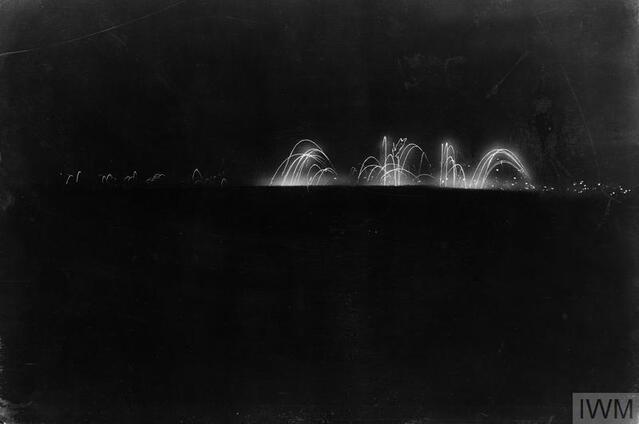 Night scene on the battlefield, showing Verey lights being fired from the trenches, Thiepval, 7 August 1916. (https://www.iwm.org.uk/collections/item/object/205072490) In “Nocturne,” the final poem of Henry-Jacques I have translated so far, a night in the trenches becomes a dark night of the soul. He is becoming part of the darkness; the darkness is becoming part of him. He must find a new language—using words that war “has not stained”—to understand the shadow, both “hard” and “ungraspable,” that holds him.
Nocturne by Henry-Jacques Cold night, with supple tentacles winding round the neck and shoulder: here I am, I don’t know where, stooping in a narrow cell. From the pit around me rise the arcana, opaque and hard. I grope the earth as if fumbling cards. Tonight hands must be my eyes. Like a beast in the teeth of a snare, my will contorts itself, dismayed that in this gloom I am no more than shadow merging into shade. I feel as if I were being poured into hard, ungraspable shadow that, through fissures I cannot see and without noise, slips into me. The mind, mustering all its power to leave the dark in which it’s caught, floats like wood, emptied of thought, on the black, slow-moving water. It hears the murky silence made of whispering voices in the thousands flowing together in human currents. Huddled in the trench we wait. A little more and the naked mind dares question its fate; and now, escaping the words that war has stained, it senses truths it never knew. And from the throat of the pit a noise rises, a funereal voice: “What are you doing in this shadow?” And my heart responds, “I do not know.”
0 Comments
Leave a Reply. |
AuthorWrite something about yourself. No need to be fancy, just an overview. Archives
July 2024
Categories |
 RSS Feed
RSS Feed